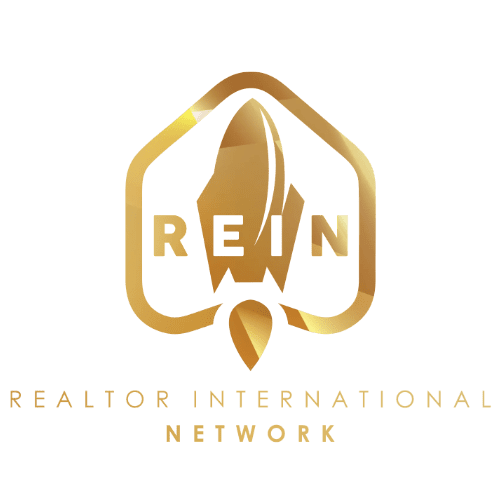In my decade of guiding international clients to their dream homes in Punta Cana, I’ve learned that the final 30 to 45 days of the transaction—the “closing period”—are the most critical. This is the finish line. It’s where all the planning, negotiation, and due diligence come together. A smooth home purchase closing is not a matter of luck; it’s the direct result of meticulous preparation and expert project management.
For a buyer, especially one managing the process from abroad, this period can feel overwhelming. There are financial deadlines, legal documents, and final inspections to coordinate. This guide is your definitive checklist, designed to demystify the process and ensure your journey to ownership is as seamless and stress-free as the Punta Cana lifestyle itself.
Table of Contents
The Foundation: Your Professional Team is Your Quarterback
You cannot overstate the importance of your professional team during the closing period. Your real estate agent and your lawyer are the quarterbacks who coordinate every play. This is the phase where the answer to the question, “Is a real estate agent essential for home buying?” becomes crystal clear. Your agent ensures deadlines are tracked, communication flows between all parties (your lawyer, the seller’s agent, the bank), and that you are kept informed every step of the way.
Step 1: Finalizing Your Finances
With an accepted offer in hand, the financial clock starts ticking.
Secure Your Financing: If you are using a local Dominican bank for a mortgage, you will now complete the formal application process. The bank will commission its own valuation, which is a key part of understanding the home appraisal process in Punta Cana. If you are a cash buyer, you will work with your bank to prepare for the international wire transfer of the final funds. Be proactive and understand your bank’s timelines and requirements for large overseas transfers.
Understand Your Closing Costs: There are no surprises in a well-managed closing. Your lawyer will provide you with a detailed “Statement of Funds” outlining all the costs you will be responsible for. In the Dominican Republic, these typically include:
- Property Transfer Tax: A percentage of the property value.
- Legal & Notary Fees: Your lawyer’s fees for drafting the contracts, conducting due diligence, and managing the title transfer.
- Appraisal & Survey Fees: The cost of the official valuation and survey verification.
- Wire Transfer & Bank Fees: Any fees associated with moving the funds.
Understanding these costs upfront is essential for proper financial planning.
Step 2: Completing Your Due Diligence
While your lawyer handles the legal due diligence, there are two final checks that you and your agent will perform.
The Home Inspection: If your offer was contingent on a satisfactory home inspection, this will be completed early in the closing period. The inspection report can be a final point for negotiating home prices in Punta Cana if significant, previously unknown issues are discovered.
The Final Walk-Through: This is your last chance to inspect the property before you own it. It is typically conducted 24-48 hours before the signing. You will verify that the property is in the same condition as when you agreed to buy it, that any agreed-upon repairs have been completed, and that all included items (appliances, furniture) are present.
Step 3: The Closing Day – The Signing Ceremony
The “closing” itself is the formal signing of the final purchase and sale agreement, known as the Act of Sale (Acto de Venta).
Reviewing the Documents: Before the meeting, your lawyer will provide you with the final Act of Sale to review. This document is the culmination of understanding property deeds in Punta Cana. It contains the full legal description of the property, the final price, and the seller’s warranties. You must review it carefully.
The Signing: You will meet with the seller, your lawyer, and a Dominican Notary Public. The Notary will verify everyone’s identity and witness the signing of the Act of Sale. Once signed and notarized, the funds are transferred, and the keys are handed over. You are now the owner of the property.
Post-Closing: After the signing, your lawyer’s work continues. They will file the signed Act of Sale with the tax authorities and the Title Registry Office to have the official Certificate of Title issued in your name.
Frequently Asked Questions (FAQs)
How long does it take to close on a house in Punta Cana?
The typical timeframe from a signed offer to the final closing day is between 30 and 45 days. This allows sufficient time for bank financing, legal due diligence, and the preparation of all necessary documents. Cash deals can sometimes close faster.
What documents will I need to provide for closing?
You will need to provide clear copies of your passport, a second form of ID, and any documents required by your bank if you are financing. For cash buyers, you will need to provide proof of funds. Your agent and lawyer will give you a precise list.
Can I close on the property if I am not physically in the Dominican Republic?
Yes. This is very common. You can grant a specific, limited Power of Attorney (POA) to your lawyer or a trusted representative. This allows them to sign the closing documents on your behalf, making the process incredibly convenient for international buyers.
Your Seamless Path to Ownership
A smooth home purchase closing is the satisfying conclusion to your property search. By understanding the steps, assembling a great team, and staying organized, you can navigate this final phase with confidence and ease. It is the well-managed, professional process that transforms a complex transaction into the joyful moment you receive the keys to your new home in paradise.
At realtor.international, we pride ourselves on providing the expert project management needed for a flawless closing experience. Contact us today, and let us guide you every step of the way to your front door.




